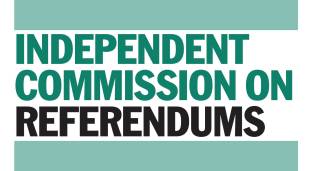A commission of senior figures established to review the role of referendums in British democracy and consider how the rules and practice could be improved.
Read the Commission's report (pdf)
Read the Commission's report's executive summary, conclusions and recommendations (pdf)
The Constitution Unit established an Independent Commission on Referendums in autumn 2017 to review the role of referendums in British democracy and consider how the rules and practice could be improved.
The 12 distinguished Commission members included two former cabinet-level ministers, four other current and former parliamentarians, a former Chair of the Electoral Commission and a former head of political programming at the BBC. Others were leaders in the fields of political theory, media standards and public opinion. They represent a range of political opinions, with expertise extending across all major UK referendums of recent years.
The Commission deliberated over eight months and took evidence in all four parts of the UK. Its report makes almost 70 detailed recommendations, every one of which was agreed unanimously.
- Commission Members
Commission Chair: Sir Joseph Pilling KCB
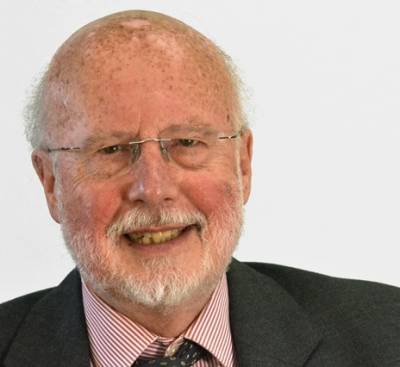
Joe Pilling has previously served as both Director General of the Prison Service and Permanent Secretary of the Northern Ireland Office. Since leaving the civil service in 2005 he has been involved in several reviews covering, for example, the Civil Aviation Authority, the 30 Years Rule and the Independent Press Standards Organisation. He is a current or former trustee of several charities.
The Rt Rev. the Lord Eames OM
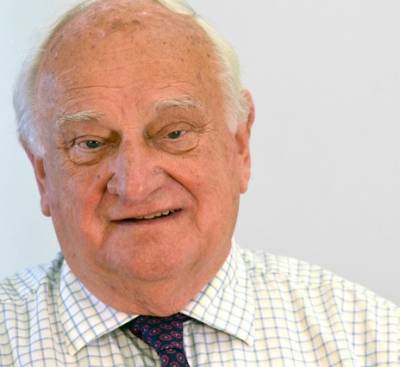
Robin Eames was Anglican Archbishop of Armagh and Primate of all Ireland from 1986 to 2006. He is an active Crossbench peer and a member of the Privileges and Conduct Committee of the House of Lords. Along with the other church leaders, he had a key role in the peace process in Northern Ireland, where there was a referendum on the Good Friday Agreement in 1998.Rt Hon Cheryl Gillan MP
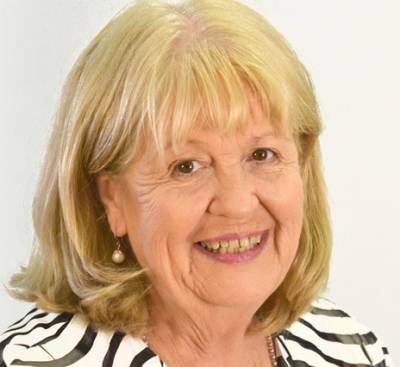
The late Cheryl Gillan was a Conservative Member of Parliament for Chesham and Amersham 1992 to 2021. Born in Cardiff, she was Secretary of State for Wales from 2010 to 2012, during which time she oversaw the Welsh devolution referendum of March 2011. She is a former member of the Public Administration and Constitutional Affairs Select Committee and the Procedure Committee, and represents the UK on the Parliamentary Assembly of the Council of Europe, where she is the Rapporteur on the rules governing referendums.
Rt Hon Dominic Grieve QC MP
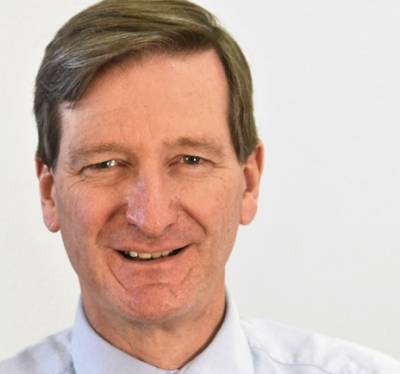
Dominic Grieve was a Conservative Member of Parliament for Beaconsfield 1997 to 2019. He was Attorney General for England and Advocate General for Northern Ireland from 2010 to 2014. He had a career in law before entering politics and was appointed a Queen's Counsel in 2008. He has been chair of parliament's Intelligence and Security Committee since 2015, and also chairs the All-Party Parliamentary Group on the Rule of Law.
Sue Inglish
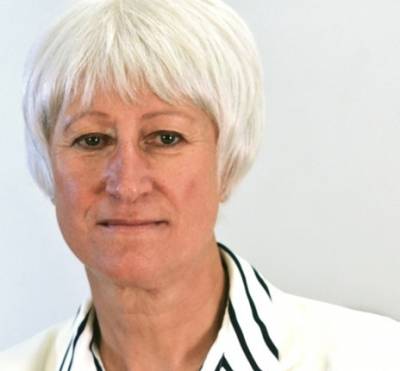
Sue Inglish was Head of Political Programmes, Analysis, and Research at the BBC between 2005 and 2015. Before joining the BBC, she worked for ITN between 1983 and 2001, where amongst other roles she was the deputy editor of Channel 4 News and editor of LBC radio.
Seema Malhotra MP
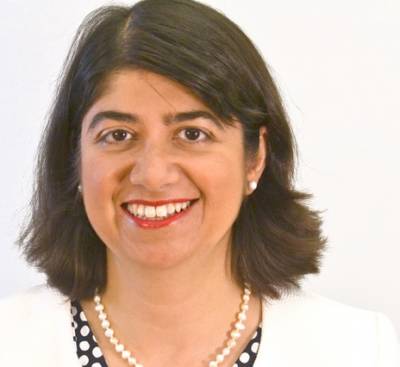
Seema Malhotra has been Labour Member of Parliament for Feltham and Heston since December 2011. She is a former management consultant who worked for Accenture and PriceWaterhouseCoopers. She served as a Shadow Home Office Minister 2014-15 and Shadow Chief Secretary to the Treasury 2015-16. She is a member of the House of Commons Select Committee on Exiting the European Union.
Deborah Mattinson
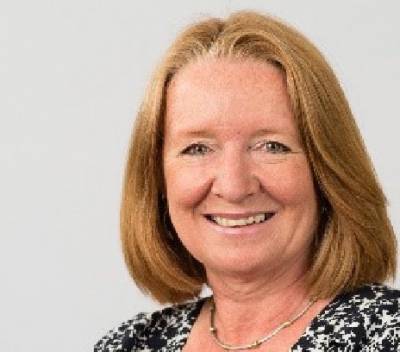
Deborah Mattinson is a specialist and regular commentator on British public opinion, and is co-founder of the consultancy BritainThinks. She was previously pollster to Gordon Brown, both as Chancellor of the Exchequer and then Prime Minister. She is the author of Talking to a Brick Wall (Biteback, 2010) - the story of the New Labour years through the eyes of the voter.
Dr Martin Moore
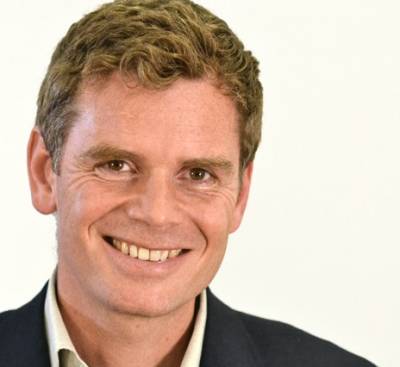
Martin Moore is Director of the Centre for the Study of Media, Communication and Power at King's College London, where he is also Senior Research Fellow at the Policy Institute. He was previously founding director of the Media Standards Trust (2006-15) and has written extensively on the news media and public policy. His publications include The Origins of Modern Spin (Palgrave Macmillan, 2006).
Professor David Runciman

David Runciman is Professor of Politics at the University of Cambridge. A political theorist and historian of political thought, he has written widely on democracy and representation, including How Democracy Ends (Profile Books, 2018). He is a regular contributor to the London Review of Books and presents the weekly politics podcast, Talking Politics.
Rt Hon Gisela Stuart
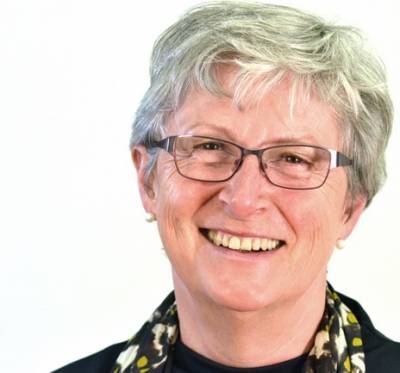
Gisela Stuart was Labour Member of Parliament for Birmingham Edgbaston from 1997 to 2017. She served as one of the UK's members of the Convention on the Future of Europe, which worked between 2001 and 2003 to draft a constitution for the European Union. She was Chair of the Vote Leave campaign for the 2016 referendum on Britain's membership of the EU.
Jenny Watson CBE
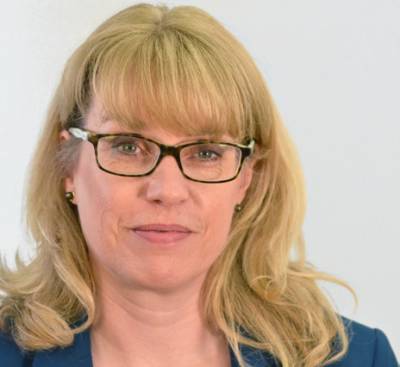
Jenny Watson was Chair of the Electoral Commission from 2009 to 2016. In this capacity she was Chief Counting Officer for the referendum on the UK's membership of the EU in 2016, as well as the 2011 referendums on the UK's parliamentary voting system, and the law making powers of the Welsh Assembly. The Electoral Commission also reported on the conduct of the 2014 referendum on Scottish independence and regulated the campaign spending.
Andrew Wilson
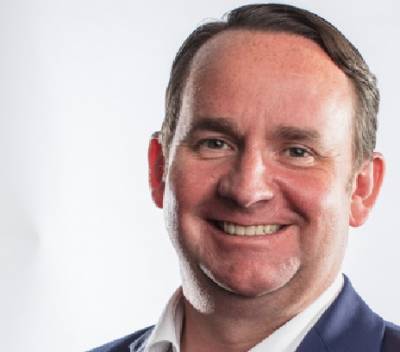
Andrew Wilson is the co-founder of Charlotte Street Partners, a communications consultancy based in Edinburgh and London. Between 1999 and 2003 he was an SNP Member of the Scottish Parliament and Shadow Minister for Finance and Economy. He chaired the SNP's Sustainable Growth Commission, which delivered its report in May 2018.
- How the Commission worked
The legislative framework for referendums in the UK was devised in the late 1990s and enacted in 2000. Since then, there have been two UK-wide referendums – in 2011, on the electoral system, and 2016, on Britain's EU membership. There have also been two referendums in the nations – in 2011, on Welsh devolution, and 2014, on Scottish independence – as well as a range of local ballots. These experiences suggest that it was time for a careful review.
The Commission's terms of reference were to consider:
- The place that referendums should play in the UK's system of representative democracy
- The legal effect of referendums and whether any additional constitutional safeguards are needed
- The role of government during the campaign
- The regulation of the designated campaign groups
- The provision of public information and education, and promotion of informed debate
The Commission was chaired by Sir Joseph Pilling, former Permanent Secretary at the Northern Ireland Office. Its 12 members have diverse experiences of and perspectives on referendums in the UK. The Commission met regularly between autumn 2017 and summer 2018. It sought and received written submissions and it held public seminars in Belfast, Cardiff, Edinburgh and London. It is very grateful to all those who took time to attend these events or express their views.
The Commission was supported through detailed research conducted by the Constitution Unit, drawing on study of the conduct of referendums in other democracies. This includes the research conducted for our parallel project on Improving Discourse during Election and Referendum Campaigns.
- Blog posts
Blog posts from the Independent Commission on Referendums are available here.
- In the media
This project in the media:
- The Guardian – 'Will a second referendum be just another Brexit fantasy?' by Martin Kettle, published 15 August 2018
- Westminster Hour – Professor Alan Renwick discusses some of the practicalities of having a second referendum. First aired 05 August 2018
- The Sun – '"Remain ad unfair" Government’s £9.3million pro-EU ad blitz gave Remain unfair boost in Brexit referendum' by David Wooding, published 22 July 2018
- The Week in Westminster – Prof Meg Russell discusses the Commission report. First aired 22 July 2018
- The Telegraph – 'Government's pro-EU publicity blitz gave Remain an unfair advantage in the referendum, report suggests' by Edward Malnick, published 21 July 2018
- The House – 'We must act now to safeguard our electoral processes' by Dame Cheryl Gillian MP and Seema Malhotra MP, published 19 July 2018
- The Guardian – 'Brexit: now it’s a battle over who governs Britain' by Martin Kettle, published 19 July 2018
- RSA – 'Getting a second referendum right' by Matthew Taylor, published 18 July 2018
- The Metro – 'There should be no second Brexit vote without referendum reform' by Harry Quilter-Pinner, published 18 July 2018
- Prospect Magazine – 'Independent Commission: no leader should ever call another referendum so nonchalantly' by Professor Alan Renwick 17 July 2018
- Talking Politics podcast – The Next Referendum. First aired 12 July 2018
- The Sun – 'PEOPLE WANT A SAY Referendums need an overhaul but votes on big decisions like Brexit are 'here to stay', say UCL academics' by Lynn Davidson, published 10 July 2018
- The Spectator – 'Only a second referendum can save us from Jeremy Corbyn' by Ross Clark, published 10 July 2018
- The Times (£) – 'Whatever side of the debate, we need to re‑think how we use referendums' by Commission Members Dominic Grieve and Gisela Stuart, published 10 July 2018
- Financial Times (£) – 'Take more care with referendums - democracy depends on it' by Prof Meg Russell, published 10 July 2018
- Financial Times (£) – 'UK approach to referendums needs 'overhaul' by Henry Mance, published 10 July 2018
- Civil Service World – 'Commission calls for changes to pre-referendum rules for civil servants' by Suzannah Brecknell, published 10 July 2018
- The Press and Journal (Aberdeen) – 'Experts propose overhaul of referendum rules in UK' by Calum Ross, published 10 July 2018
- UCL News – 'Independent Commission on Referendums calls for wholesale reform of the referendum process' published 10 July 2018
- Good Morning Wales – Professor Alan Renwick discusses the launch of the Commission from 1.19.35. First aired 16 August 2017
- Good Morning Scotland – Professor Alan Renwick discusses the launch of the Commission from 2.47.55. First aired 16 August 2017
- Today Programme – Sir Joe Pilling discusses the launch of the Commission from 49.25. First aired 16 August 2017
- Good Morning Ulster – Sir Joe Pilling discusses the launch of the Commission from 48.35. First aired 16 August 2017
- The Telegraph (£) – "Referendums are now an integral part of UK politics, but the rules are in desperate need of reform" by Professor Alan Renwick, published 16 August 2017
- BBC World Update – Professor Alan Renwick discusses the use of referendums in the UK. First aired 17 August 2017
- Brexit Watch: How to Make the Best Use of a Referendum – Extended version of Professor Alan Renwick's interview for BBC World Update from 13.05. First aired 17 August 2017
- Parliamentary impact
This project's parliamentary impact:
- Public Administration and Constitutional Affairs Committee, 25 May 2021 - Professor Alan Renwick, and members of the Commission Dominic Grieve QC, and Rt Hon Gielsa Stuart gave oral evidence to the Committee's inquiry into the role of the Electoral Commission.
- Public Administration and Constitutional Affairs Committee, 24 July 2018 - Professor Meg Russell, and Professor Alan Renwick gave oral evidence on the Commission's final report.
- Electoral Commission Investigation: Vote Leave, Commons Chamber 17 July 2018 - Dame Cheryl Gillan recommended the Commission's report to Minister for the Constitution, Chloe Smith MP. Smith said that she had begun reading the report and looks forward to further discussions on it.
- Debate on referendums and parliamentary democracy, House of Lords, 19 July 2018 - The Independent Commission on Referendums report was discussed in depth throughout the debate, being mentioned in speeches by Lord Higgins, Lord Wallace of Saltaire, Lord Anderson of Ipswich, Lord Norton of Louth, Lord Eames, Lord Tyler, Baroness Smith of Basildon and Lord Young of Cookham.
- Referendum Rules, Commons Chamber, 12 July 2018 - Dame Cheryl Gillan asked what proposals the Electoral Commission has for changing the rules on referendums. Bridget Phillipson welcomed the report of the Independent Commission on Referendums.
- Business of the House, Commons Chamber, 5 July 2018 - Dame Cheryl Gillan asked the Leader of the House for a debate on referendums, in light of the Commission's report.
- Videos
YouTube Widget Placeholderhttps://youtu.be/yh4tx6EyY6g YouTube Widget Placeholderhttps://youtu.be/mqBDnasXo78
 Close
Close


